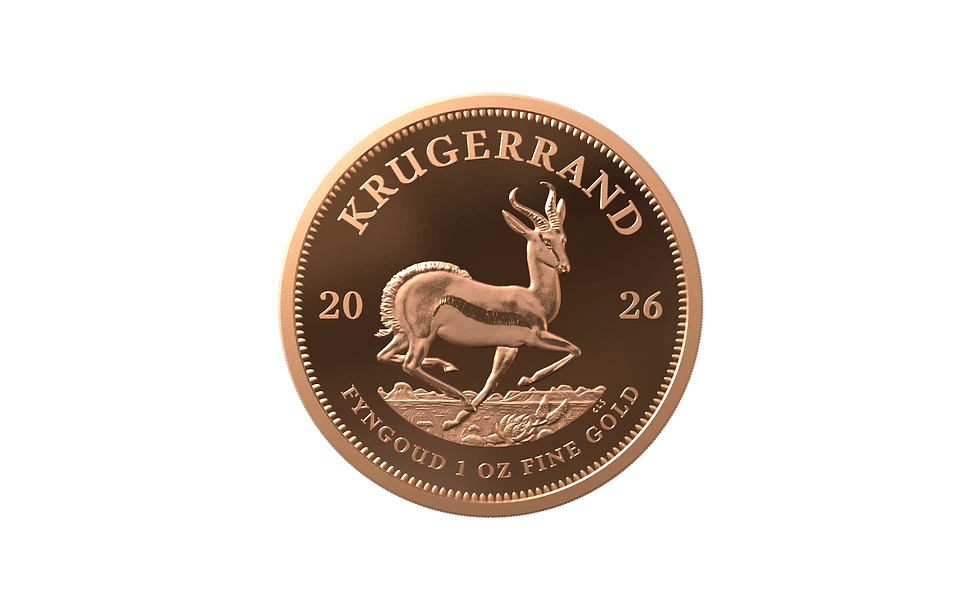Physical vs. Digital Gold – What’s the Right Choice for You?
- Gold Invest SA
- Mar 24, 2025
- 3 min read
Gold has long been considered a timeless store of value, a hedge against inflation, and a symbol of wealth. However, in today’s digital age, investors now have more options than ever when it comes to buying gold. While physical gold remains the traditional choice, digital gold has emerged as a modern alternative with its own set of advantages. So, which one is right for you?
Understanding the Differences
Before making a decision, it’s crucial to understand the key differences between physical and digital gold. While both serve the same fundamental purpose of wealth preservation, they cater to different investor needs. Below is a side-by-side comparison of the two:
Feature | Physical Gold | Digital Gold |
Tangibility | A real, tangible asset you can store and pass down through generations. | Exists only in digital form, represented by electronic records. |
Security | Requires secure storage in a safe, vault, or bank. | No physical storage needed, but dependent on digital security measures. |
Ownership | You fully own the gold in your possession, free from third-party risks. | Ownership is recorded digitally, typically managed by a financial institution. |
Liquidity | Can be sold through dealers or pawnshops, but may involve some waiting time. | Easily traded online, with instant liquidity in most cases. |
Investment Horizon | Ideal for long-term investment, legacy planning, and wealth preservation. | Better suited for short-term trading or quick access to value. |
Storage & Maintenance Costs | May require secure storage (home safe, bank vault), with possible insurance costs. | Low or no storage costs, as it exists in a digital ledger. |
Market Risks | Less affected by cyber threats or systemic failures. | Prone to cyber risks, hacking, and platform failures. |
Regulatory Risks | Highly regulated with established market practices. | Subject to changing regulations, depending on platform or country. |
Usage | Can be used for jewellery, gifting, or collateral for loans. | Purely an investment tool with no physical use. |
The Case for Physical Gold
Despite the rise of digital gold, physical gold remains the superior choice for long-term investors and those looking for true financial independence. Here’s why:
1. True Ownership and Control
When you buy physical gold, you own a tangible asset, free from intermediaries. Digital gold, on the other hand, relies on platforms and institutions that could restrict access, face insolvency, or be subject to government intervention.
2. Protection Against Systemic Risks
Physical gold is not reliant on digital platforms, which means it is immune to cyberattacks, technical failures, or hacking incidents. In contrast, digital gold is vulnerable to breaches, account freezes, and system outages, which could impact your ability to access your investment.
3. A Hedge Against Inflation and Economic Crises
Gold has historically held its value in times of financial instability. While both physical and digital gold provide this benefit, only physical gold allows you to take direct possession of your wealth—a crucial advantage during economic uncertainty.
4. Legacy and Wealth Preservation
For centuries, families have passed down gold as a store of generational wealth. Unlike digital assets, physical gold carries a sense of heritage and permanence, making it ideal for long-term wealth preservation.
The Case for Digital Gold
While physical gold is the more traditional and reliable investment, digital gold does have its benefits:
Convenience – Can be bought and sold instantly from anywhere in the world.
Low Storage Costs – No need for safes, vaults, or insurance.
Fractional Investment – Allows investors to buy even small amounts, making gold more accessible to those with limited capital.
Quick Liquidity – Digital gold can be sold with a click, whereas selling physical gold may take more time.
Which One Should You Choose?
The choice between physical and digital gold ultimately depends on your investment goals and risk tolerance. If you value absolute ownership, security, and wealth preservation, then physical gold is the superior choice. However, if your priority is convenience, short-term trading, or easy liquidity, digital gold might be a suitable option.
Final Verdict
While digital gold provides ease of access, physical gold remains the gold standard (pun intended) for those seeking stability, security, and long-term value. If you’re serious about protecting your wealth, owning real, tangible gold is the way to go.
Regardless of your choice, understanding both forms of gold investment is key to making an informed decision. Choose wisely and let gold be a strong pillar of your financial future.










